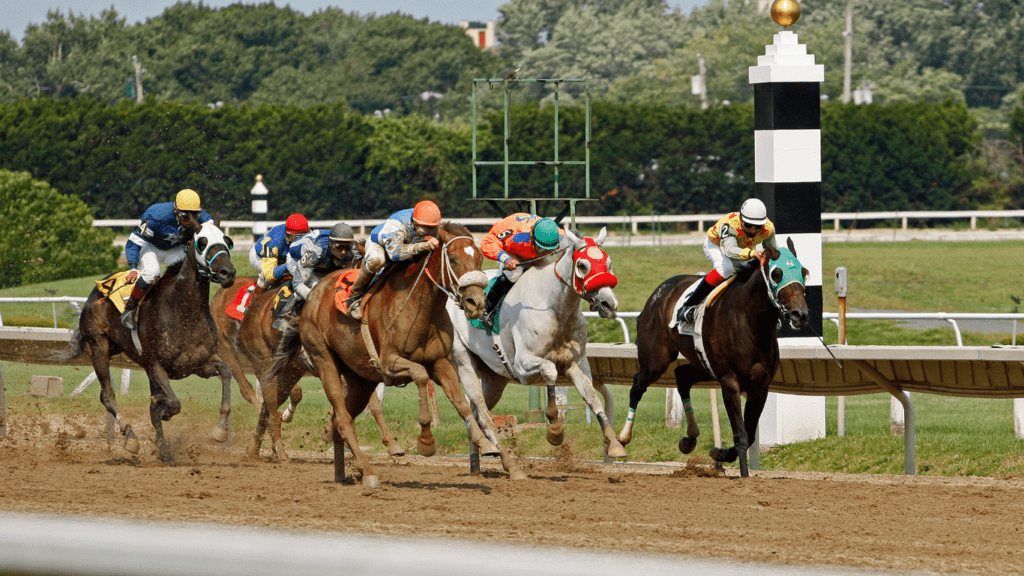Understanding Horse Racing Basics
Horse racing offers excitement and thrill, but understanding the basics is crucial for making informed bets.
Types of Horse Races
There are several types of horse races, each with unique characteristics.
- Flat Racing: This is the most common type of horse racing. Horses run on a flat, level track, usually over distances ranging from 5 furlongs to 2 miles.
- Jump Racing: Also called National Hunt racing, horses jump over obstacles like fences and ditches. Popular in the UK and Ireland, these races range from 2 miles to over 4 miles.
- Harness Racing: In this type, horses pull a two-wheeled cart called a sulky. Common in the United States and Canada, distances typically range from 1 mile to 1.5 miles.
- Endurance Racing: Horses cover extreme distances, often 50 to 100 miles. Stamina and endurance are crucial for these races.
Key Racing Terminologies
Understanding common terms improves your ability to analyze races.
- Furlong: A unit of distance, 1 furlong equals 1/8th of a mile. It’s often used to describe race distances.
- Handicap: A race where horses carry different weights to level the playing field. The idea is to give each horse an equal chance of winning.
- Maiden: A race for horses that haven’t won a race yet. These are crucial for identifying up-and-coming talent.
- Post Position: The horse’s allotted starting gate. This can affect the horse’s chance depending on the track layout.
- Purse: The total prize money distributed to the top finishers. Higher purses often attract better horses.
- Form: A horse’s past performance record. Analyzing form helps predict future performance.
Analyzing the Factors for Betting Success

Analyzing relevant factors increases your chances of successful horse racing bets. Let’s delve into key elements critical for making informed decisions.
The Importance of Horse Form
Examining a horse’s form is essential for successful betting. Horse form refers to the horse’s past performances, typically represented as a series of numbers and letters that indicate race outcomes.
For example, the sequence “3-1-2” would mean the horse placed third, first, and second in its last three races.
Consistent high placements suggest a strong contender, while erratic performances may indicate unreliability.
Reviewing the horse’s recent finishes, race types, and conditions can reveal its strengths and weaknesses.
Trainer and Jockey Statistics
Trainer and jockey statistics provide valuable insights into betting decisions. Successful trainers often have a track record of preparing horses to win.
Analyzing their win percentages, the number of trained horses, and notable achievements can yield significant information. Jockey performance also affects race outcomes.
A jockey’s win rate, experience, and previous collaborations with specific horses or trainers impact a horse’s chances.
For instance, a jockey consistently ranking in the top five should be favored over one with sporadic results.
Race Track Conditions
Race track conditions significantly impact race outcomes.
Track surfaces—such as dirt, turf, or synthetic—affect horse performance differently. For example, some horses excel on muddy tracks while others prefer firm footing.
Track conditions can be classified as fast, good, yielding, sloppy, or heavy. Understanding how a horse performs under different conditions can make or break your bet.
Monitoring weather updates and track maintenance reports can provide a competitive edge.
Incorporating these factors into your analysis can enhance your horse racing betting strategies, leading to more informed and potentially successful wagers.
Strategic Betting Techniques
Successful horse racing bets don’t rely solely on luck. These strategic betting techniques ensure informed decisions and maximize returns.
Bankroll Management
Bankroll management is essential for sustainable betting. Allocating a specific amount for betting avoids chasing losses.
I recommend dividing funds into smaller units and betting a fixed percentage, like 1-2% per race. This approach mitigates risks and ensures longevity in betting.
The Role of Betting Exchanges
Betting exchanges offer an alternative to traditional bookmakers. Here, bettors can back or lay horses, giving more control. These platforms often provide better odds due to peer-to-peer betting.
I leverage these exchanges to find value and enhance my betting strategies.
Value Betting in Horse Racing
Value betting involves finding odds that offer a higher probability of winning than implied by the bookmaker. To spot value bets, I analyze form, statistics and race conditions.
Consistent value betting can increase long-term profitability in horse racing.
Utilizing Technology and Resources
Using technology and available resources can enhance betting strategies in horse racing. Leveraging tools and platforms can make bets more informed and increase the chances of success.
Handicapping Software Tools
Handicapping software tools provide data-driven insights into horse racing bets.
These tools analyze historical data, track conditions, and horse performance. For example, software applications can present complex statistical data in an easy-to-understand format.
Utilizing such tools saves time and helps bettors make more accurate predictions.
Popular options include Timeform and Equibase, which offer detailed race analysis. By integrating these tools into your betting strategy, you can benefit from comprehensive analytics and improve decision-making.
Benefits of Online Betting Platforms
Online betting platforms offer convenience and a range of features tailored for horse racing betting. These platforms allow easy access to a variety of betting markets and competitive odds.
For instance, platforms like:
- Betfair
- TwinSpires
provide live streaming of races, real-time updates, and user-friendly interfaces. Additionally, many offer promotions and bonuses, adding value to your betting experience.
By using online platforms, you can track your bets more efficiently and explore varied wagering opportunities without the limitations of a physical location.
Employing these technological tools can enhance your betting outcomes and provide a more strategic approach to horse racing bets.

 Oliver Paget is a seasoned gambling advisor and prolific article writer, contributing his extensive knowledge and expertise to Gamble Guru Gate. With a background steeped in the gambling industry, Oliver has become a trusted voice for both novice and experienced gamblers seeking reliable information and strategic advice.
Oliver's journey into the gambling world began with a fascination for the statistical and psychological aspects of gaming. This curiosity led him to pursue advanced studies in statistics and psychology, equipping him with a deep understanding of game theory, risk management, and player behavior. His academic background, combined with hands-on experience in various gambling environments, allows Oliver to offer a well-rounded perspective on the industry.
Oliver Paget is a seasoned gambling advisor and prolific article writer, contributing his extensive knowledge and expertise to Gamble Guru Gate. With a background steeped in the gambling industry, Oliver has become a trusted voice for both novice and experienced gamblers seeking reliable information and strategic advice.
Oliver's journey into the gambling world began with a fascination for the statistical and psychological aspects of gaming. This curiosity led him to pursue advanced studies in statistics and psychology, equipping him with a deep understanding of game theory, risk management, and player behavior. His academic background, combined with hands-on experience in various gambling environments, allows Oliver to offer a well-rounded perspective on the industry.
